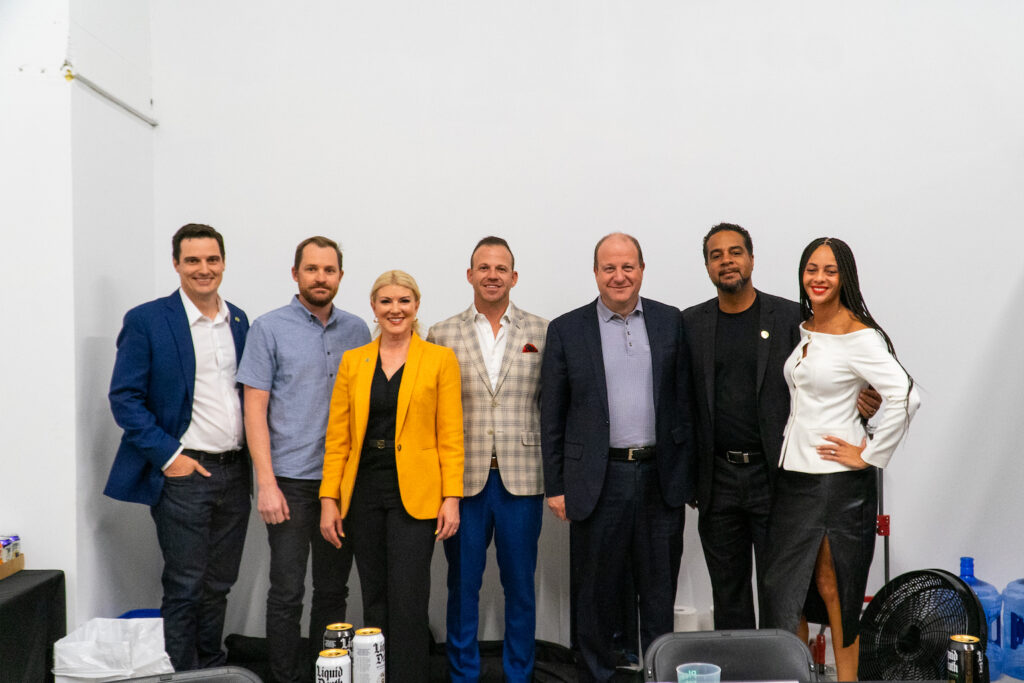
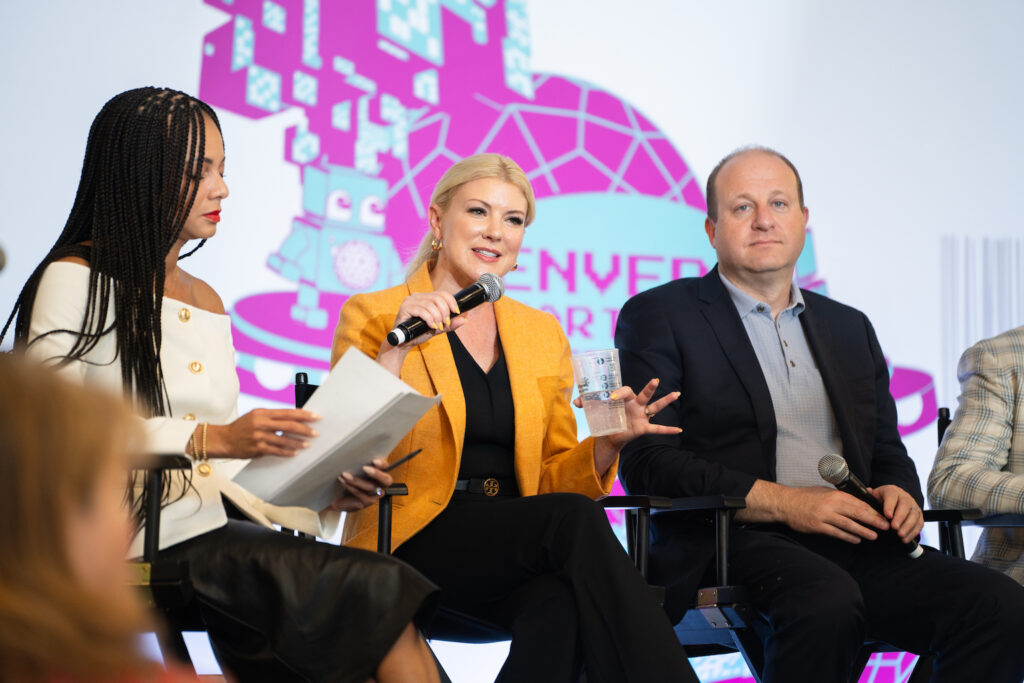
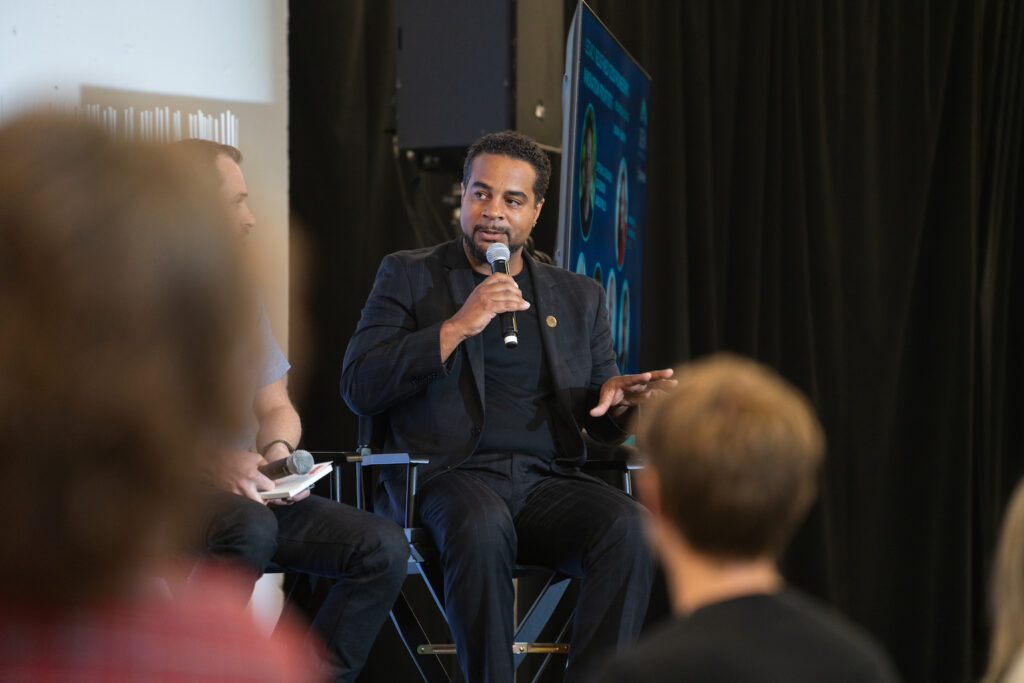
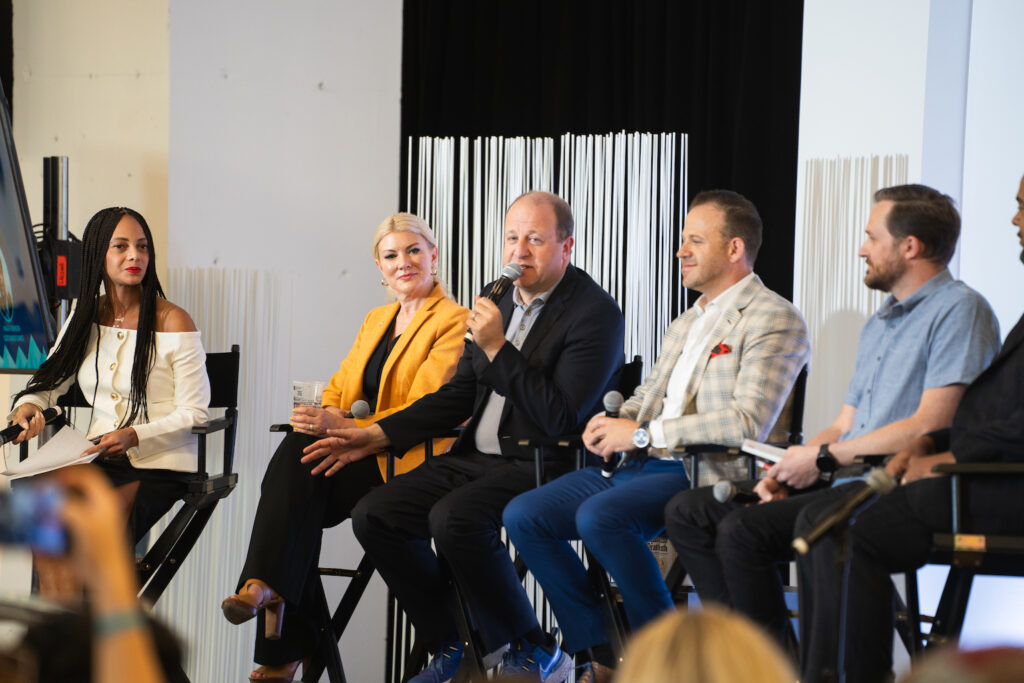
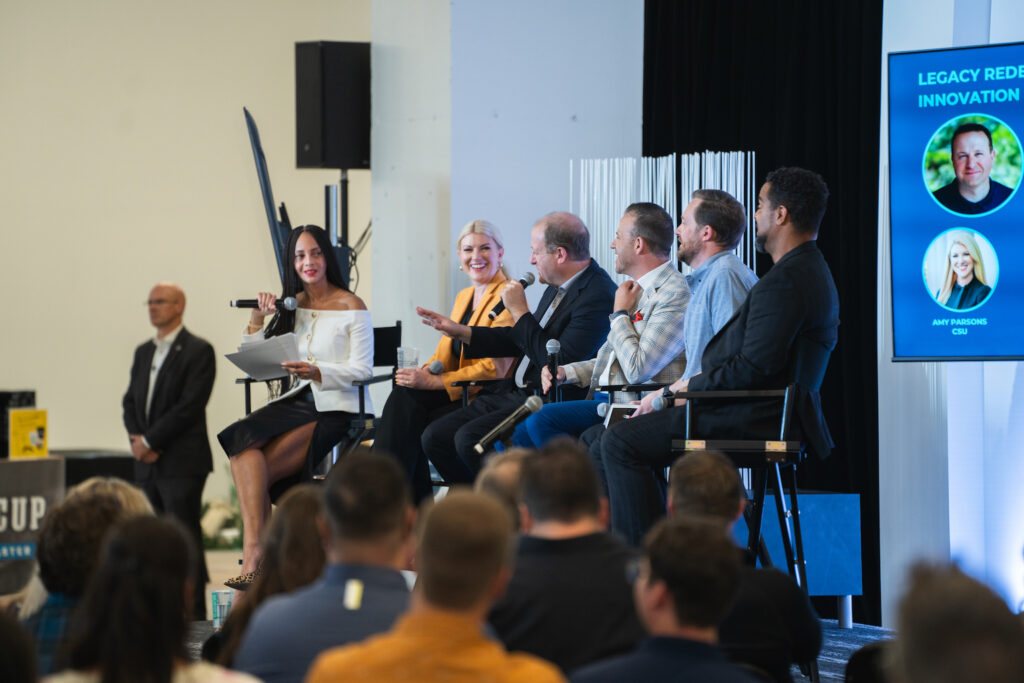
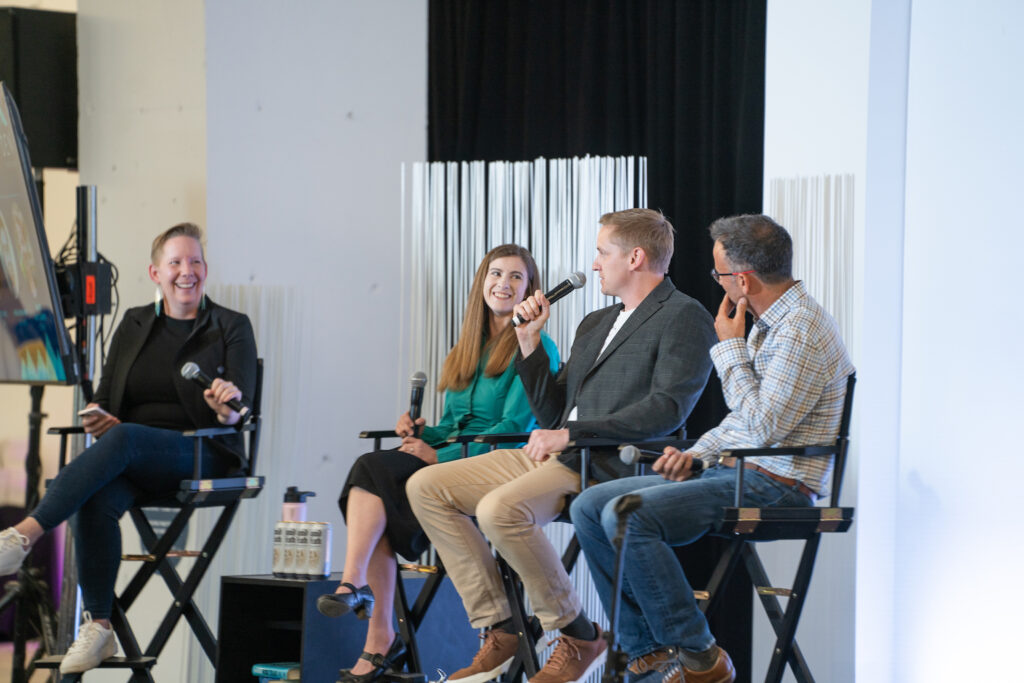
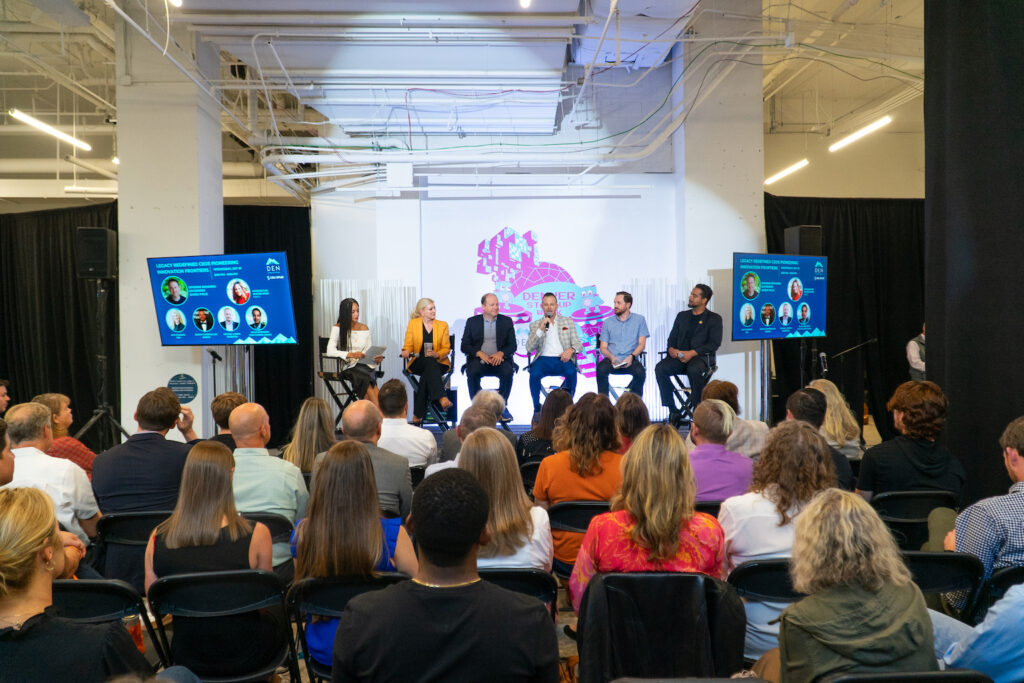
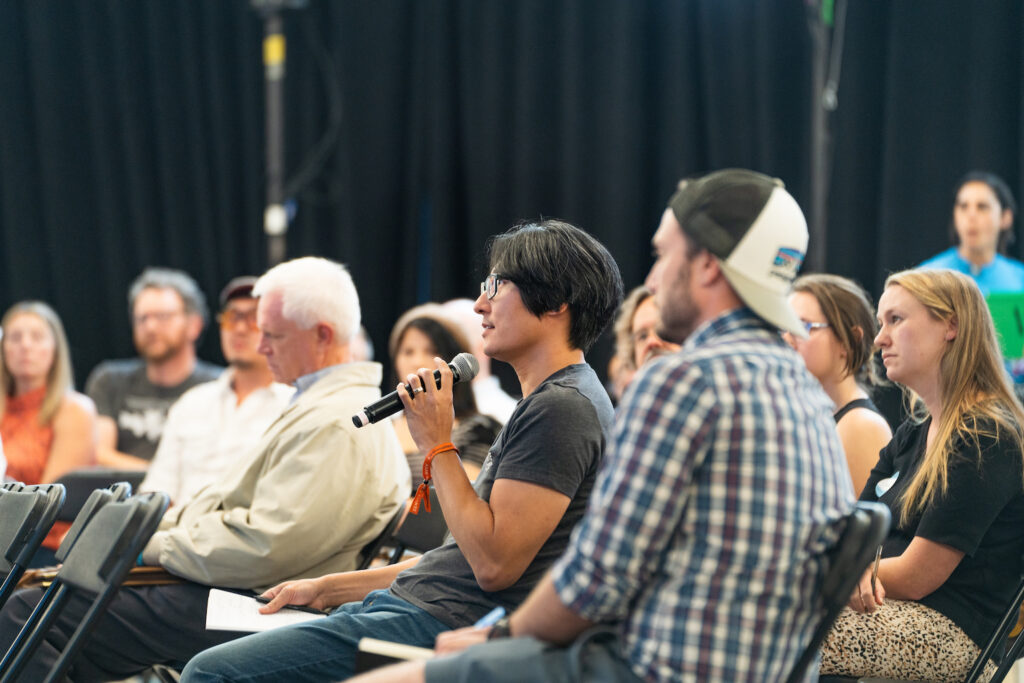
Colorado bills itself as the epicenter of entrepreneurship and innovation, and the three CSU Spur buildings in the heart of the National Western Center in Denver illustrate how one university is looking to retain its original mission while preparing for the future.
Colorado State University opened Spur, a campus that allows visitors and students of all ages to tour a greenhouse, watch dogs and cats being operated on and explore water sustainability without heading to Fort Collins.
“We have built a campus inside out if you will, where everything is behind glass and open to the public,” CSU President Amy Parsons said. “The point is for people to get a better understanding of the major challenges that we are facing and see themselves in the solutions. Hopefully, they can enroll in a program so that they are part of those solutions moving forward.”
Parsons, who served as CEO of a private company before re-joining CSU, joined Gov. Jared Polis and three 0ther entrepreneurs Wednesday evening to share their experiences about challenging conventions and igniting growth. Their panel was a highlight of Denver Startup Week, which opened Monday. The free event brings together aspiring entrepreneurs, successful startup owners, and business and civic leaders for educational sessions, social connections and motivational events and is the largest of its kind in the country.
Polis, who created his first business while he was in college, pointed to the networking advantages of the conference. Colorado, he noted, is a great place to live and it attracts people with ideas and money to invest.
Brian J. Elizardi, director of Community Impact and Innovation for CSU agreed, noting that CSU is an important part of that ecosystem.
“At CSU … we want to be able to support you in your entrepreneurial journey. We are everywhere in Colorado and this state is our campus,” Elizardi said. “It’s kind of what we do. It’s who we are. It’s a function of our DNA.”
CSU is a land-grant university, whose original mission was to teach agriculture, military tactics, and the mechanic arts as well as classical studies so members of the working classes could obtain a liberal, practical education.
“The trick,” Parsons said, “is to take that legacy and that mission and still be able to move fast, like a startup, and be innovative in what we do in order to meet the needs of today’s industries and today’s students.”
She said she doesn’t think there is anything like it anywhere in the country.
Ostermiller became a concert promoter while attending CSU, and now is the CEO and co-founder of Edison Interactive.
“My goal as an entrepreneur is to shake it up,” he said.
The event was moderated by Simone Ross, a CSU graduate and the CEO of the Colorado Women’s Chamber of Commerce. The other panelists were Michael Coors, CEO of CoorsTek, and Malik Robinson, executive director of Cleo Parker Robinson Dance.
“The arts provide tremendous connectivity,” said Robinson, who runs the business his mother created. “It provides an environment for businesses to flourish. As we are doing our urban development, we have to have artists involved at every level.”
The panel also made observations about the future, with concerns about China, hacking and the lack of affordable housing in Colorado.
“People can only live in their parents’ basements for so long,” Polis said, to laughs.
But overall, there was optimism.
“Back in the day, Colorado was a flyover state,” Ostermiller said. “That couldn’t be further from the truth now. This is where it’s happening.”
Lynn Bartels worked as a journalist for 35 years, including stints at the Rocky Mountain News and Denver Post.